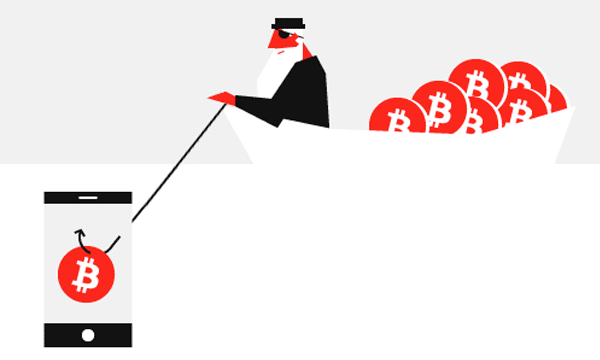Bitcoin’s greatest advantage is giving the user complete control over their funds.
Your bitcoin is controlled only by you, not a bank, a credit card company or any other intermediary.
However, these most beneficial features may also pose a threat to inexperienced users. Bitcoin transactions are irreversible and permanent, there are no charge back’s and no intermediary to turn back time, or absorb losses associated with theft or fraud.
Consequently, users must exercise caution and only transact securely, with trusted parties.
Unfortunately, bad guys haven’t gone away in 2018, and they have taken advantage of these new technologies, using bitcoin as a tool to scam unsuspecting victims. If you’re new to bitcoin, be sure to take proper security precautions and always use your common sense.
Never send bitcoin or use a bitcoin ATM to buy a product or deal that seems too good to be true, it’s probably not what it seems. Always deal with a trusted party when spending your money. Always send the bitcoin from the ATM to your own wallet.
Scammers are becoming very sophisticated and will even go as far as to place online advertisements for good deals on tickets to concerts, amusement parks, and even better deals to buy cars through EBay motors. Scammers ask that you pay them in bitcoin for their “good deal”.
Many people send bitcoin, not realizing they’ve been scammed until it’s too late! Don’t fall for it.
Common types of scams include:

Purchase of Entertainment TicketsScammers pose as a promotions company offering tickets to concerts or amusement parks at a significant discount when you pay with bitcoin. You send bitcoin and never receive your tickets. It’s best practice to only buy tickets from trusted parties like Ticketmaster or Live Nation directly.

Purchase of a VehicleScammers advertise the sale of a discounted vehicle for bitcoin on Craigslist or EBay. You send bitcoin and never get the vehicle. When purchasing a vehicle from a private seller for bitcoin, it is typically best practice to kick the tires; physically meeting with a seller, test driving the vehicle, reviewing vehicle history and title information; all before sending the seller bitcoin for payment.

Coin ClubsUsers buy bitcoin and join a “coin club”, where they are promised to receive more bitcoin than they originally contributed, or very high returns. This is a new form of “Ponzi scheme” where victims are led to believe they may profit from an automated trading strategy or by signing up more and more users. Unfortunately, many users lose significantly in the collapse of these schemes — BitConnect is a popular example.

Bill PayScammers pose as legitimate Companies, including; FPL, AT&T, T- Mobile and threaten unsuspecting victims with service termination, unless they immediately settle their outstanding balance — in bitcoin. Generally, the Service Provider must follow several steps to turn-off your service, including contacting you by mail and phone. Currently, most Utility and Communications providers do not accept bitcoin as a form of payment.

IRSThat’s right, scammers have even posed as the IRS and requested victim’s pay their tax bill in bitcoin. Please be aware that the IRS does not:
- Call or Email
- Threaten immediate arrest
- Demand immediate payment using a specific payment method
- Demand payment without giving the opportunity to question or appeal
- Ask for payment information over the phone or through email
Bitstop advises customers to transact with caution and avoid Initial Coin Offerings (ICOs), Token sales, get rich crypto clubs and in general: any investment schemes or product offerings that seem ‘too good to be true’.
Always use best security practices when buying and storing your bitcoin. It’s still early in Bitcoin’s history and you should be cautious when using bitcoin to transact.
